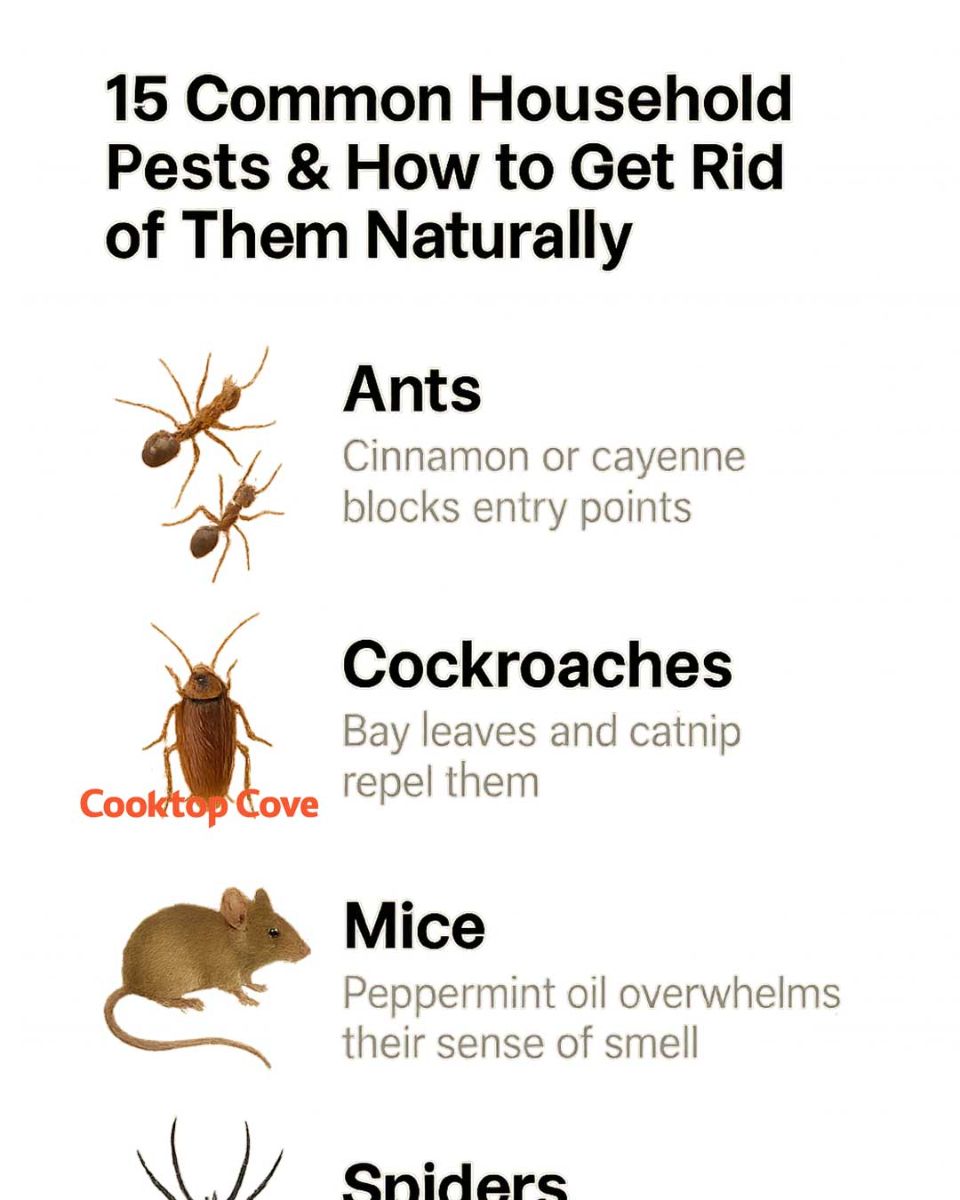Vacuum regularly to remove webs and eggs, especially in corners and under furniture.
5. Flies: Natural Repellents and Traps
Flies are attracted to food, trash, and moisture.
To control them:
Create a fly trap by mixing ½ cup apple cider vinegar and a few drops of dish soap in a shallow bowl. Leave it uncovered near fly-prone areas.
Hang fresh basil or mint plants near windows or doorways to act as a natural repellent.
6. Mosquitoes: Eco-Friendly Ways to Keep Them Away
Mosquitoes breed in standing water and can carry diseases.
To reduce their presence:
Empty standing water in birdbaths, buckets, and planters every 2–3 days.
Plant mosquito-repelling herbs like citronella, lavender, or marigolds near doors and patios.
Apply lemon eucalyptus oil diluted to 10% (about 1 tsp oil to 1 tbsp carrier oil) on exposed skin to repel bites.
7. Bed Bugs: Natural Treatment Options
Bed bugs are persistent and hard to eliminate.
To treat naturally:
Wash and dry bedding, clothes, and linens on high heat (120°F/49°C or higher) weekly.
Apply food-grade diatomaceous earth (2 tablespoons) along mattress seams, baseboards, and bed frame cracks.
Spray essential oils like tea tree or lavender (10 drops per 1 cup water) around the bed area.
8. Fleas: Safe and Natural Control Methods
Fleas affect both pets and humans.
To manage them:
Vacuum carpets and pet bedding daily during infestations.
Spray furniture and rugs with a mix of 1 cup water and juice from 1 lemon.
Add ½ teaspoon of brewer’s yeast per 10 lbs of body weight to your pet’s food (check with your vet first).
9. Termites: Natural Prevention and Control Strategies
Termites can cause serious structural damage.
To prevent and control:
Keep wood at least 6 inches above soil level and repair leaks.
Apply orange oil (about ½ cup) into visible termite holes or infested wood weekly.
Introduce beneficial nematodes (1 million per 100 sq ft) to soil to target termite larvae.
10. Silverfish: Natural Deterrents and Solutions
Silverfish prefer moist, dark spaces like bathrooms and basements.
To keep them away:
Run a dehumidifier to reduce indoor humidity below 50%.
Place sachets filled with cedar shavings or cloves (1 tablespoon each) in closets and storage boxes.
Clean corners and vacuum weekly to eliminate eggs and hiding spots.
11. Wasps: Non-Toxic Ways to Deter Them
Wasps can be aggressive and dangerous for those with allergies.
To deter them:
Spray a mix of 1 tablespoon peppermint oil in 1 cup water around decks, eaves, and outdoor dining areas.
Hang decoy wasp nests (1–2 per 10 ft of outdoor space) to trick real wasps into avoiding the area.
Keep sugary drinks and food covered outdoors.
12. Moths: Natural Prevention and Control
Moths target clothing and pantry items.
To prevent infestations:
Store clothes in airtight bins or garment bags.
Use cedar blocks or lavender sachets (1–2 per drawer or closet section) to repel moths naturally.
Vacuum and wipe down closets every few weeks to remove larvae.
13. Beetles: Eco-Friendly Solutions
Beetles damage garden plants and stored food.
To control naturally:
Introduce ladybugs (around 1,500 per 100 sq ft) to your garden to eat beetle larvae.
Spray plants with neem oil mix (2 tsp neem + 1 tsp mild soap + 1 quart water) weekly.
Place bay leaves (1–2 per container) in pantry jars or flour bins to repel beetles.
14. Earwigs: Natural Repellents and Prevention
Earwigs are drawn to moisture and mulch.
To manage them:
Reduce outdoor moisture by trimming vegetation and removing mulch near the house.
Spray earwigs directly with 1 cup water + 1 teaspoon dish soap.
Dust entry points and baseboards with diatomaceous earth (1 tablespoon per area) to create a barrier.
15. Gnats: Natural Methods to Eliminate Them
Gnats thrive in moist soil and drains.
To eliminate them:
Pour ½ cup baking soda followed by ½ cup vinegar into drains weekly, then flush with hot water.
Trap gnats with a bowl of ¼ cup apple cider vinegar and 3 drops dish soap.
Cover houseplant soil with ½ inch of sand to stop gnats from laying eggs.
Conclusion: Maintaining a Pest-Free Home Naturally
Keeping your home free of pests naturally requires a proactive approach. Regular cleaning, proper food storage, and maintaining a dry environment are key to preventing infestations. By using natural repellents and deterrents, you can protect your home without relying on harmful chemicals. Embracing these eco-friendly methods not only safeguards your health and property but also contributes to a more sustainable environment.
